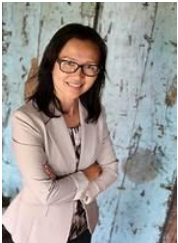ADD THESE DATES TO YOUR E-DIARY OR GOOGLE CALENDAR
This site is part of the Siconnects Division of Sciinov Group
This site is operated by a business or businesses owned by Sciinov Group and all copyright resides with them.
ADD THESE DATES TO YOUR E-DIARY OR GOOGLE CALENDAR

Southern Adventist University, United States
Title:Validity of an Exercise Log for Measuring Duration of Exercise in Older Women with Knee Osteoarthritis
Background and Purpose: Accurate measurement of adherence to prescribed home-based exercise programs is essential for evaluating their effectiveness and is particularly challenging with anerobic exercise interventions. While exercise logs are cost-effective and user-friendly, there is limited evidence of their validity for measuring exercise duration and their usability in older populations. The purpose of this secondary analysis was to examine the validity and usability of a paper log compared to an objective measure, video recordings, for evaluating exercise duration in older women with knee osteoarthritis.
Methods: Data from 23 women (mean age=70.4 years) who completed an 8-week pilot randomized controlled trial investigating the effects of yoga versus aerobic/strength training on knee osteoarthritis were included. Participants were asked to complete a paper log and a video recording of their home exercise sessions and the Physical Activity Scale for the Elderly (PASE). Data were analyzed using descriptive statistics and Pearson’s correlation coefficients.
Discussion: Concurrent validity was high between minutes reported on the paper logs and video recordings during Weeks 2 - 7 (r = 0.878). Usability was high with participants completing 79%-91% of paper logs and 74%-100% of video diaries weekly. The overall minutes reported on the paper exercise logs and video diaries were positively correlated to PASE scores at 8 weeks. Exercise logs are a valid and useful method in assessing adherence to prescribed exercise duration in unsupervised home programs.
Implications for practice: Our study adds to the evidence base regarding the psychometric properties of a paper exercise log when engaging in prescribed, unsupervised anerobic exercise programs by older women with knee osteoarthritis. This information will be helpful to clinicians in monitoring and counseling their patients, and to researchers in reporting on differential treatment effects based on adherence rates as well as in the superiority of different types of exercise for knee osteoarthritis in comparison trials and meta-analytical studies.
Dr. Corjena Cheung earned her doctoral and postdoctoral degrees from the University of Minnesota. A dedicated nurse educator and researcher, she is deeply committed to improving the health and well-being of older adults. Her research centers on the use of complementary/ integrative therapies to manage symptoms, encourage physical activity, prevent disability, and enhance quality of life among community-dwelling older adults with chronic conditions. Dr. Cheung is also a passionate advocate for aging education, striving to prepare future healthcare professionals to better serve the aging population. She currently serves as Dean of Graduate and Professional Studies at Southern Adventist University.